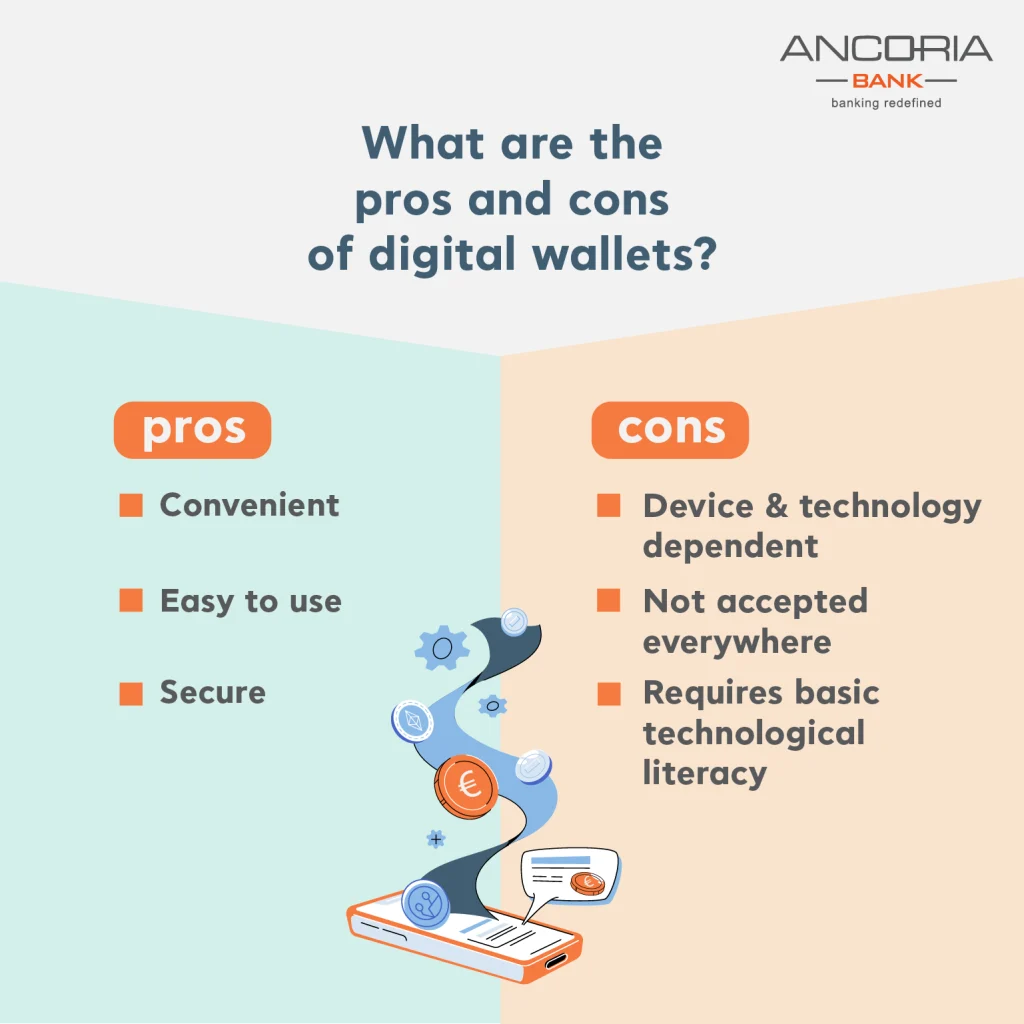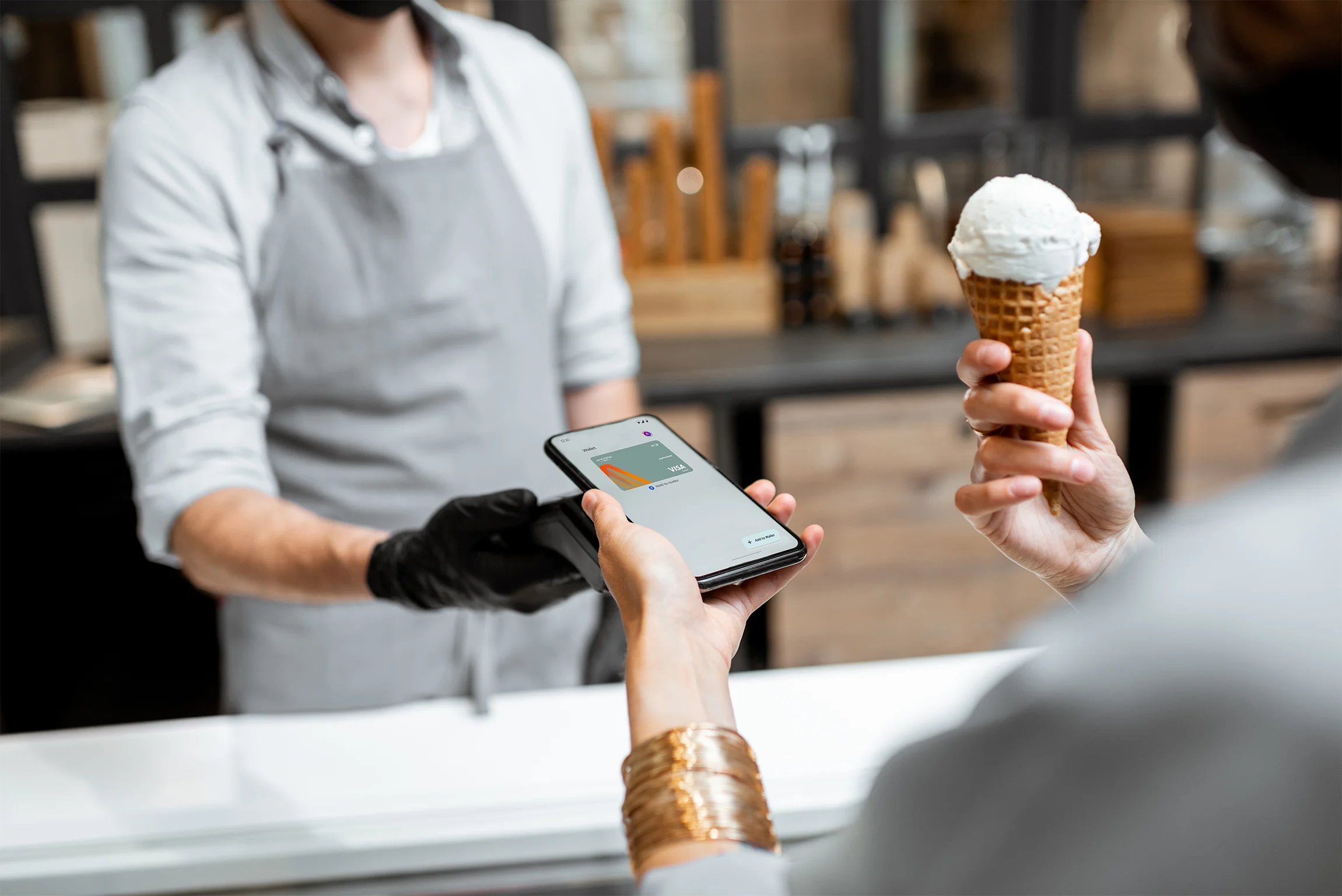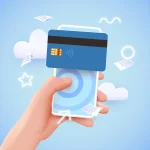It used to be a recurring theme. When it was time to pay, you would start digging in your bag or pocket trying to find your wallet, card or cash. Now however, you can leave your wallet at home as digital wallets have you covered!
Digital wallets are transforming the way people in Cyprus, and around the world pay, receive and send money. In 2024, global digital wallet users reached 4.3 billion, representing 53% of the world’s population. Their popularity can be attributed to their ability to perfectly combine speed, convenience and security, making them an essential tool for both personal and business banking.
What are digital wallets?
A digital wallet, also known as e-wallet, is an application that securely stores your payment information, such as your debit and credit cards, in order for you to make transactions using only your smart devices, such as a smartphone, smartwatch, or even your personal computer. Essentially, instead of using your physical bank card to pay, you simply use your device to complete payments, whether you are paying in a physical store or online.
Some popular examples of digital wallets are Google Pay and Apple Pay. An important note is that not all digital wallets work with all devices. Make sure you check compatibility of the digital wallet with your operating system first. For example, Google Pay is supported on an Android operating system and Apple Pay on iOS.
Among debit and credit cards, digital wallets can also store:
- Prepaid bank cards
- Gift cards
- Membership cards
- Loyalty cards
- Event tickets
- Plane and transit tickets
- Hotel reservations
How digital wallets work?
Digital wallets use strong encryption and tokenisation in order to store and send your payment data securely. Here’s how they work:
1. Check if your card is eligible to add to a digital wallet. This is important as you won’t be able to use the digital wallet to make payments for a card that is not officially approved.
2. Download and open the digital wallet app that your device’s operating system supports. Some devices already have a digital wallet pre-installed depending on their operating system.
3. Add your debit or credit card details. Some banking applications, like myAncoria, give you the opportunity to add your card details for the digital wallets through the banking app. This is a good way to know that your bank card supports the digital wallets functionality.
4. The digital wallet app verifies you and the card, encrypts and then stores your card details. You are now able to make contactless payments.
5. When you pay, your real card number is not transmitted. In its place a unique ‘token’ (tokenisation) is used, ensuring that even if someone intercepts your payment they would not be able to get your real card details.
6. The payment is processed instantly and securely.
What are the types of digital wallets?
There are three main types of digital wallets:
- Closed wallets: Issued by a company for transactions only with them.
- Semi-closed wallets: Supported by a group of merchants that have agreement with the issuer.
- Open wallets: Linked to banks and can be used anywhere cards are accepted.
What are the pros and cons of digital wallets?
Digital wallets have many pros. One of them is the convenience they offer with quick and contactless, transactions, simplifying payments without having to use physical currency or bank cards. In addition, they are easy to use online and in stores, with just your smart device. Also, with encryption and tokenisation, the security they offer guarantees the safety of your personal data and payments.
Concerning the cons of digital wallets, because they rely on technology, potential disturbances, such as network issues or malfunctions, may affect your access to your money. Moreover, they depend on your device, namely if your device runs out of battery, you lose access to the app. Furthermore, digital wallets may not be accepted everywhere, for example small businesses, limiting where you can use this type of payments.

Are digital wallets safe?
Digital wallets are considered safer than other traditional payment methods. Using encryption and tokenisation, they make sure that your real data is not transmitted and is kept safe from any fraud attempt. Moreover, some digital wallets use extra layers of protection such as face recognition and biometric verification in order to complete a payment, further preventing unauthorised use.
What is tokenisation?
Tokenisation is a security process where sensitive information, such as your card number, is replaced with a unique identifier called a token. This token acts as a reference to your original data but cannot be used outside the secure system that created it.
The key benefit is that your actual payment details are never shared during a transaction. Instead, only the token is exchanged, which greatly reduces the risk of fraud and at the same time limits the exposure of your personal data.
Are there any fees using digital wallets?
The most well-known digital wallet apps such as Google Pay and Apple Pay are free of charge. This enables individual customers to use them anytime, anywhere.
Are there any other types of digital wallets?
In short, yes. As our society becomes more and more digital, using digital wallets becomes more vital as they are able to store essential information, such as official identification and credentials, and can be used for other activities beyond payments.
One example that we have in Cyprus is the Digital Citizen mobile app, where you can store official documents, like your national ID card and driver’s license, in digital form, which can be legally used within the country. Moreover, there is the European Union initiative of the European Digital Identity (EUDI) that aims to provide every European citizen the possibility to securely store their credentials, prove their identity and share documents digitally within the European Union boarders. These advanced forms of Digital Wallets simplify everyday life and also any interactions with the public services.
What is the future of digital wallets?
In the next few years, digital wallets are expected to integrate more services, making them an essential part of everyday life. In Cyprus alone in 2024, 85.1% of internet users handled finances online, above the EU average. Although the success of digital wallet usage depends heavily on trust and good infrastructure, their pros far outweigh the cons.
Digital wallets will be able to offer a more personalised banking experience beyond simple payments by integrating features like expense tracking and account management using a paperless approach. With the quick growth of contactless payments and enhance security features, digital wallets will continue to evolve and take centre stage revolutionising the way we bank offering a sustainable and convenient way of managing your finances replacing physical wallets and cash.


















